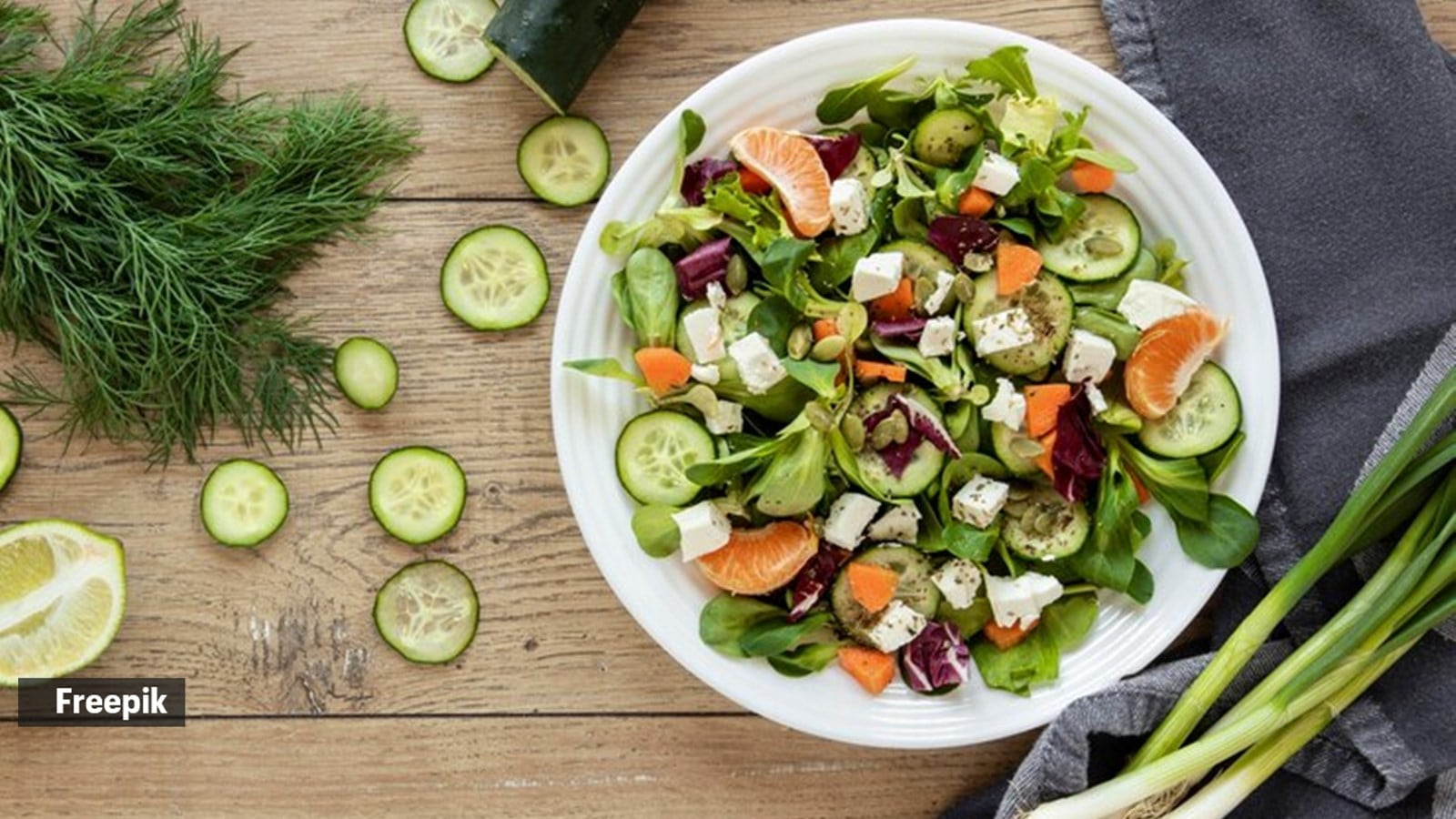Cucumber is a hydrating, cooling vegetable that is particularly beneficial during the summer months. A recent social media reel suggests that it should be eaten only in the morning, paired with rock salt, and avoided at night or when combined with curd. While such recommendations are rooted in traditional beliefs, it’s important to separate cultural practices from evidence-based nutrition.
According to Deepalakshmi, a registered dietitian at The Cleft & Craniofacial Centre, Sree Balaji Medical College & Hospital, Chennai, eating cucumber in the morning or mid-morning is indeed beneficial, especially in hot climates.
“Its high water content helps replenish fluids, and its mild fiber supports digestion. Pairing it with a pinch of rock salt may aid those prone to bloating and enhance taste, but moderation is key—excess salt, even rock salt, can contribute to elevated sodium intake,” she said.
Story continues below this ad
When is the right time to eat cucumbers?
However, she mentioned that there’s no scientific reason to completely avoid cucumber at dinner. “While some people with sensitive digestion may experience bloating when consuming raw vegetables at night, this isn’t true for everyone. If tolerated well, it can be safely included in evening meals,” said Deepalakshmi.
Similarly, she believes the idea that cucumber should not be combined with curd lacks evidence. In fact, cucumber raita is a traditional and nutritious preparation—offering hydration, fiber, and gut-friendly probiotics. For most people, this combination is not only safe but also supportive of digestion.
 Have cucumbers as a part of your salads (Source: Freepik)
Have cucumbers as a part of your salads (Source: Freepik)
To get the most out of this vegetable, it’s best to wash it thoroughly, trim both ends, and peel it if it’s not organic to reduce potential pesticide exposure. Those with digestive sensitivity may also benefit from removing the seeds.
Health benefits of cucumber
“Cucumbers are incredibly versatile and can be incorporated into a wide range of dishes. “Whether sliced in salads, blended into smoothies, or used as a crunchy topping for sandwiches, cucumbers add texture, flavour, and nutritional value to meals,” Dr Archana Batra, a dietician, and a certified diabetes educator told indianexpress.com.
Story continues below this ad
Cucumbers are rich in fibre, which is essential for digestive health. Including cucumbers in your diet can promote regular bowel movements and help prevent constipation. In fact, they contain antioxidants such as beta-carotene and flavonoids, which help neutralise harmful free radicals in the body. Consuming foods rich in antioxidants is important for protecting cells from damage and reducing the risk of chronic diseases.
Calling it a “treasure box of nutrients, phytonutrients and antioxidants,” which render it all the health benefits it offers, Garima Goyal, a registered dietitian, said that the vegetable is a great snacking option for those aiming for weight loss.
“This is due to two features. This vegetable is more than 90 per cent water and is very hydrating. Since it’s mostly water, it is very low in calories but gives satiety and you don’t get hunger pangs. Secondly, it has a high amount of soluble fibre content which gives volume to your stool and eases bowel movements, enabling toxin clearance from the body and detoxifying it,” she told indianexpress.com.
“Though more human research is needed, animal trials and test tube studies have shown that diabetics can benefit from cucumber by lowering the blood sugar levels and preventing diabetes complications,” said Goyal.
























